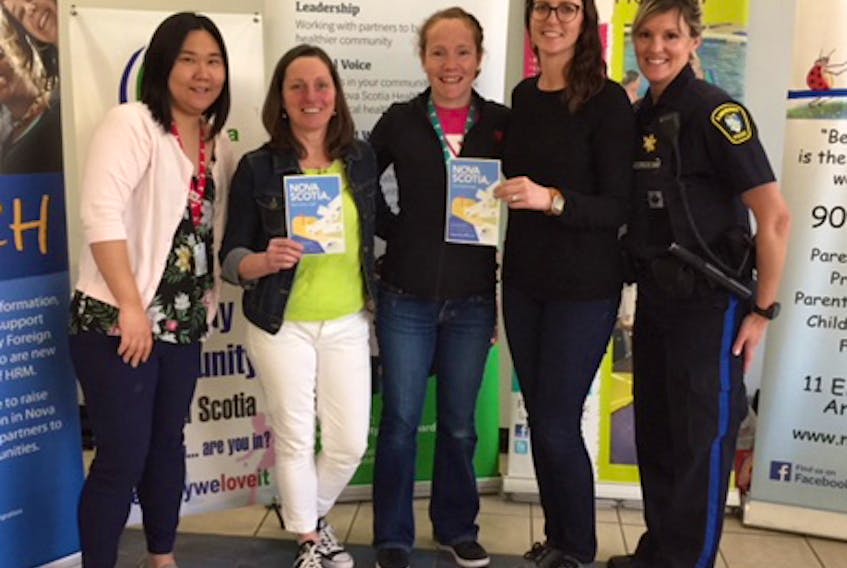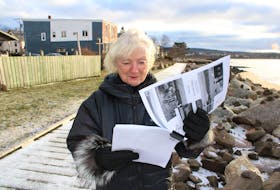AMHERST, N.S. — Cumberland County residents, like their Nova Scotia counterparts, are being given an opportunity to provide input on the province’s quality of life.
Engage Nova Scotia has sent out surveys to mailboxes around the province with approximately one-in-five households, or 80,000, receiving an invitation containing a code that enables them to complete the online survey that takes about 30 minutes.
The survey asks how people feel they are doing in eight key areas related to their quality of life, such as living standards, time-use and community vitality.
“Traditionally, much of the information we have used to make decisions about our daily lives has been based on economic data,” says Danny Graham, chief engagement officer with Engage Nova Scotia. “Those data aren’t wrong, they’re just incomplete. We think that if we have a more complete picture of how Nova Scotians are doing in all areas that matter to them, we’ll be better equipped to make decisions that help everyone live a good life.”
The survey is being led by Engage Nova Scotia with support from Nova Scotia Community College, and administered by the Canadian Index of Wellbeing at the University of Waterloo.
The survey has support locally
“As a physician I can tell you that people who are well-educated and well-connected to power and resources have less trouble being heard and making their needs known. Their needs, and the determinants of quality of life for this group will not necessarily be those of the average citizen or those living with limited means or abilities, such as the very young, the elderly, those who are handicapped, geographically isolated or impoverished,” Amherst physician Dr. Janneke Gradstein said. “For this reason it is important to gather information about quality of life systematically. It is also important to recognize that substandard quality of life for a portion of the population impacts the entire population.”
Consequently, she said, a more thorough investigation of the needs of the entire province will enable us to get more "bang for our buck" in community investments.
“For example, a new stadium, however desirable, in a location where transportation is identified as the primary obstacle for a large number of people; that is going to be a relatively ineffective investment,” she said.
As a physician recruiter, she feels it's important to identify communities that simply can't attract professionals because of infrastructure. Those areas can invest in recruitment fairs, brochures, private recruiters and more, but they will be ineffective.
“These deficiencies need to be identified so that the infrastructure in established communities can be maintained, tweaked and developed with improved recruitment. For example, it is unlikely that you will ever recruit a physician with children to a community without a pool where their children can learn to swim.”
Carolyn d’Entrement, former executive director at Maggie’s Place, said the survey will help build a stronger province.
“If we want to build strong communities in this province our goals and objectives need to focus on more than our economic standard of living,” she said. “Engage Nova Scotia is providing us with a unique opportunity to participate in a quality of life survey that will provide data to complement the economic information that is currently used when decisions are made. This survey will allow our northern Nova Scotia voices to be heard regarding what is important to us in respect to our quality of life here and how we can work together to be happier, healthier and more self-fulfilled.”
Once collected, the information from the survey will be compiled and prepared into up to ten regional reports. Those reports will then serve as the foundation for innovative approaches to priority-setting and planning at a local level for years to come.
“We’re imagining that the 10 Local Leadership Teams will form the starting point for cross-sector working groups that focus on turning the results into action,” says Graham. “For us, this is more than a research project; it’s a ‘shaping our future’ project.”
Anyone over the age of 16 in a household that receives an invitation can complete the survey, which is open until July 5. Participation is voluntary and all personal information is completely confidential. People who would prefer a paper copy of the survey (in English or French) can call 902-407-2582 or email [email protected].
High-speed Internet access and assistance going online is available at all @NS sites. To find the site closest to you, or with general questions about the survey, call 211.









